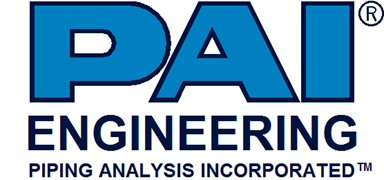To aid in process analysis and mechanical stress-related problems, we provide heat transfer analysis. We have the capability, using our experience together with commercial programs, to use proven analytical methods as well as the latest computational fluid dynamics and heat transfer techniques.
Time dependent heat transfer calculations are especially beneficial in determining temperature gradients through thicknesses such as tube sheets when unexplained cracks and/or leaks appear. Most standard design codes do not consider temperature gradients that occur through the thickness of a pressure containing membrane or a tube sheet, and concurrently through its height (from top to bottom). Temperature gradients can generate large thermal stresses and shape deformations, and during non-equilibrium conditions, such as start-up, shut-down, rapid restart, loss of plant power, etc. Even more severe thermal stresses and distortions can occur during other operating anomalies.
Piping system heat transfer calculations are also beneficial in determining linear and non-linear temperature differentials which occasionally occur in most piping and equipment during non-equilibrium conditions. In situations like these, system elements such as equipment nozzles, foundations, piping flanges, spring supports, rigid supports, and other system elements can be overloaded above the levels originally anticipated by the designer.
Bentley AutoPIPE © calculates static and dynamic response properties of complex piping systems and structures using finite element techniques, and solves one-dimensional transient heat transfer problems for piping. The program can be used to analyze a wide variety of problems. The static capability includes the computation of piping and structural deformations and member loads and stress caused by an arbitrary set of thermal loads, applied loads, and displacements. The dynamic capabilities include mode shapes and natural frequencies, response spectra, phased harmonic load analysis, time history dynamic analysis and force spectra analysis. For modal analysis, AutoPIPE can automatically insert mass points along elements. AutoPIPE provides built- in fluid transient synthesizers for calculation of waterhammer, steamhammer, and relief valve forces, which are integrated with time history dynamic analysis. The computational method is beam element FEA. Stresses are calculated in accordance with first principles of stress analysis, the Huber, von Mises, Hencky failure theory, and the Tresca failure theory as required by the ASME piping and vessel codes, including subsections for nuclear piping and components.
For more information: +1 (225) 292 9709

